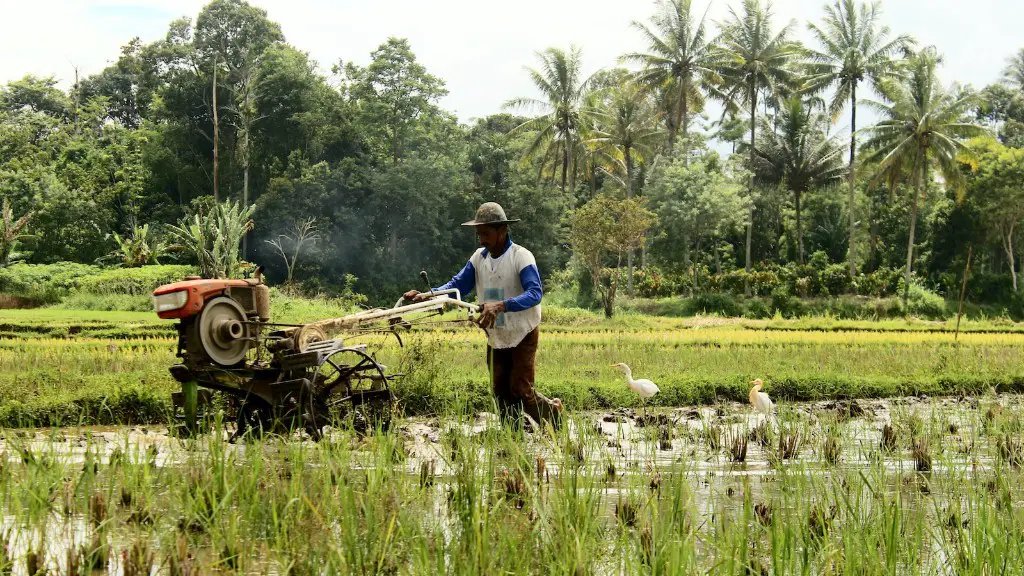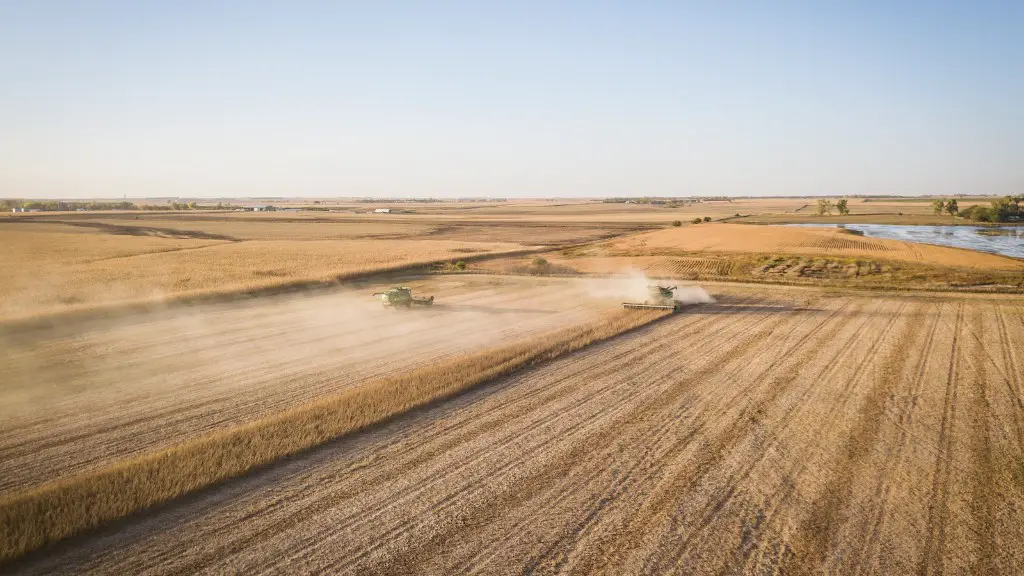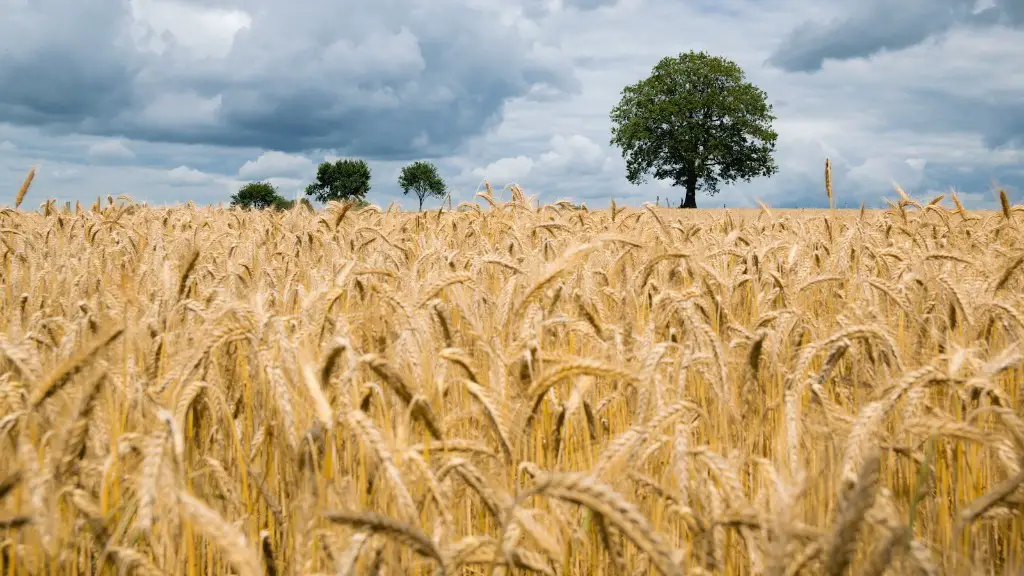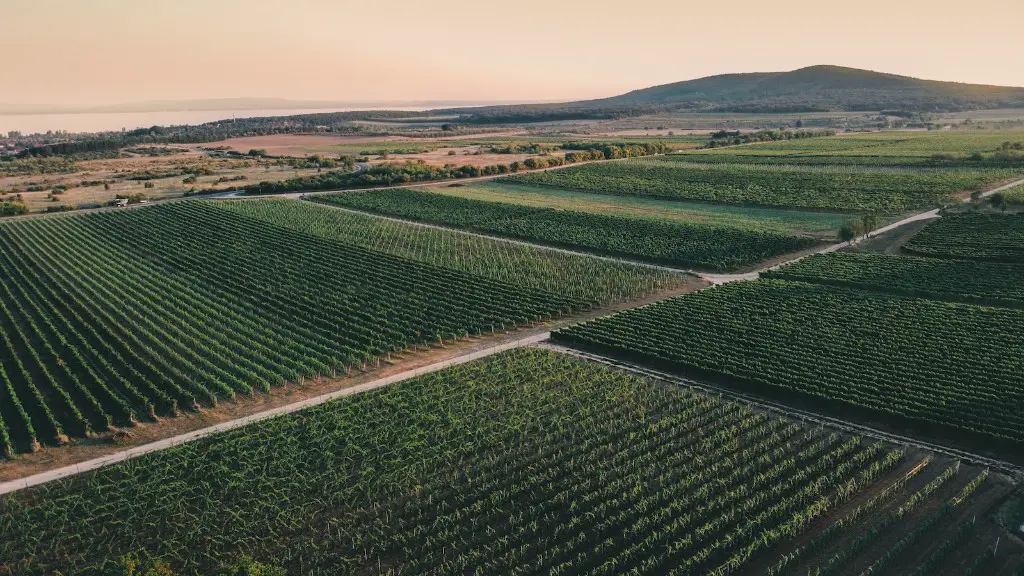Agriculture is a major factor in global deforestation. It has been responsible for more than 80 percent of all tropical deforestation over the past century. There are several causes of deforestation related to agriculture, ranging from the expansion of large-scale agricultural operations to the subsistence level of farming. It is important to address this issue in order to protect the environment and the health of future generations.
The first cause of deforestation from agriculture is the expansion of large-scale operations. These operations typically require more land than traditional agriculture, which often means forestland needs to be cleared in order to make room. Since these operations need to be able to support large-scale operations, they must have access to more land than smaller-scale farms.
Additionally, the growth of monoculture farming is also contributing to deforestation. Monocultures require less land than traditional crop rotations, however, they are largely dependent on the use of chemical fertilizers and pesticides, which can lead to soil degradation and reduce the health of ecosystems. Monocultures are also more susceptible to diseases, leaving farmers with no choice but to clear more land in order to continue production.
Subsistence farming is also a major contributor to deforestation. This practice tends to involve clearing small patches of land for farming, which can lead to deforestation over time as farmers look for new plots of land. Additionally, there is no incentive for farmers to use sustainable practices, as the land is not their own and there is no economic benefit from conserving it.
Finally, the illegal trade of timber and other forest products is also contributing to deforestation. This trade is often linked to agricultural activities, such as cattle ranching or soy production. Illegal loggers often clear areas of forest to make room for farms, and years later when the land is no longer productive, it may be cleared to make room for livestock grazing.
Reducing Deforestation through Sustainable Agriculture
To counteract the effects of deforestation caused by agriculture, it is essential to focus on sustainable agricultural practices. This includes the use of agroforestry, which is the intentional integration of trees and shrubs into cropland and grazing land. Agroforestry practices can help improve soil fertility, conserve water, and increase biodiversity, while also providing multiple sources of income for farmers.
In addition to agroforestry, sustainable agriculture also requires the use of improved farming techniques, such as soil conservation practices, water harvesting, and the integration of crop-livestock systems. Such practices help reduce the need for farmers to expand their land, while also protecting existing forests.
The use of sustainable agricultural policies is also essential. This includes policies such as land tenure reform, targeted subsidies, and the enforcement of existing laws. These policies should be targeted towards small-scale farmers, who often lack the resources and knowledge to adopt sustainable agricultural practices.
Finally, it is also important to focus on consumer education about the impacts of deforestation. Consumers need to be made aware of the impact that their purchases have on the environment and be encouraged to make sustainable choices.
The Impact of Deforestation on Climate Change and Biodiversity
Deforestation from agriculture has a variety of impacts on the environment, ranging from climate change to the loss of biodiversity. The destruction of forests reduces the amount of carbon stored in vegetation, increasing atmospheric CO2 levels, which in turn contributes to global warming. Additionally, the destruction of forests affects the ecosystem, reducing the habitat for many animal and plant species.
The loss of biodiversity can also have a major impact on the health of ecosystems. The destruction of forests leads to a decrease in the number of different species in an area, reducing the ability of the ecosystem to respond to disturbances and making it more susceptible to invasive species. Additionally, the loss of biodiversity can lead to reduced soil fertility, as some species of plants play a major role in nutrient cycling and soil fertility.
The destruction of forests also contributes to air and water pollution, as trees play an important role in filtering air and water. The lack of trees and vegetation also increases soil erosion, leading to sedimentation of streams and rivers, which can cause water pollution and reduce water quality.
Finally, deforestation from agriculture can also lead to social and economic instability, as countries that rely heavily on natural resources for their economies may suffer if their forests are depleted. This can lead to displacement of communities and reduced access to food resources, reducing the standard of living for those who rely on natural resources for their income.
Governments Role In Combating Deforestation
Governments have an essential role to play in tackling deforestation from agriculture. Governments should ensure that any large-scale agricultural projects are conducted in accordance with sustainable practices that do not contribute to deforestation. They should also provide adequate financing and resources to small-scale farmers, so that they can adopt sustainable practices.
In addition, governments should also focus on reducing illegal logging and enforcing laws that protect forests. This should include increased enforcement of timber laws, as well as other measures such as community-based forest management and the promotion of alternative sources of income for those involved in illegal logging.
Finally, governments should also focus on raising awareness of the impacts of deforestation. They should provide incentives for companies and individuals to adopt sustainable practices and improve their environmental performance. This can include measures such as taxation incentives, green procurement policies, and public education campaigns focusing on sustainable forest management.
International Cooperation in Combating Deforestation
At an international level, governments should ensure effective cooperation in order to combat deforestation from agriculture. This includes increased collaboration between countries on enforcement, research, conservation and sustainable development. Additionally, international initiatives such as the UN REDD+ program and the Carbon Offsetting and Reduction Scheme for International Aviation (CORSIA) should be implemented in order to reduce global emissions from deforestation and land-use change.
In addition, international aid should be provided for countries that are particularly vulnerable to deforestation. This could include funds for sustainable agricultural projects, capacity-building initiatives, and assistance with the implementation of sustainable forest management policies.
Finally, it is important to ensure that any investments in agriculture should be made with a view to protecting forests. Investors should be aware of the impacts of deforestation and ensure that their investments are contributing to sustainable practices.
Incentives for Sustainable Agriculture
In order to ensure that agricultural activities do not contribute to deforestation, it is essential to provide incentives for farmers to adopt sustainable practices. It is important to ensure that farmers have access to financing, technology, and knowledge, in order to be able to adopt sustainable agricultural practices.
Incentives could include targeted subsidies, access to quality seeds and fertilizer, and targeted investment in infrastructure. Additionally, farmers should be rewarded for their efforts in using sustainable practices, through the use of financial incentives, trainings, and certification programs.
In addition to incentives for farmers, it is also important to engage the private sector in order to promote sustainable agricultural practices. This could include the use of ‘green’ procurement policies, the development of sustainability standards, and other initiatives that incentivize companies to adopt sustainable practices.
Finally, governments should also focus on enhancing consumer awareness about the impacts of unsustainable practices and promote sustainable consumption. This could include initiatives such as labeling schemes for sustainable products, as well as public education campaigns about the importance of sustainable consumption.





